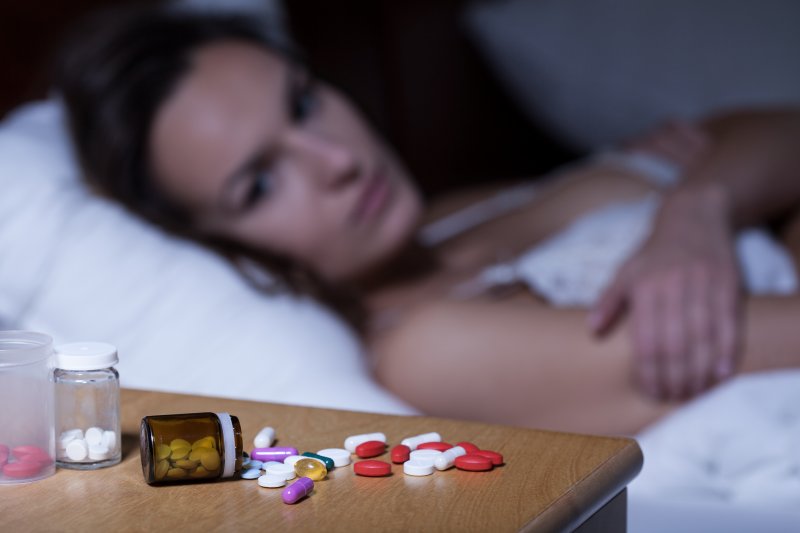Why You Shouldn’t Take Sleeping Pills for Sleep Apnea
January 25, 2021

Sleep apnea is a condition that keeps waking you up during the night. Thus, taking sleeping pills to help you fall asleep and stay asleep should help you overcome this disorder, right? Unfortunately, this probably isn’t the sleep solution you’re looking for. In fact, sleeping pills are more likely to make your sleep apnea even worse than before; read on to learn how.
What Causes Sleep Apnea?
To understand the impact sleeping pills have on your sleep disorders, you need to understand what is happening to your body when you have sleep apnea. This disorder occurs when your breathing is repeatedly interrupted while you’re asleep. While this is occasionally due to a problem with the brain, most of the time the cessation of breathing occurs when the soft tissues in your throat relax, causing them to collapse and block the airway. Once the airway has been partially or completely blocked, oxygen levels in your body will fall, and your brain will be forced to wake you up for air, pulling you out of the sleep cycle.
How Do Sleeping Pills Affect Sleep Apnea?
Sleeping pills work by helping the mind and body relax, allowing sleep to set in easier. The problem is that if the soft tissues near your throat are already relaxed, then more relaxation is the last thing they need. Thus, taking sleeping pills can make an already existing sleep disorder even worse. The same holds true for antidepressants and other medications that have a sedating effect, as they also contain ingredients that increase tissue relaxation. You may want to talk to your doctor about the medications you’re taking to see if any of them might be contributing to sleep apnea without you realizing it.
What Can Be Done About Sleep Apnea Instead of Taking Sleeping Pills?
Sleep apnea typically isn’t treated with a pill. Instead, you need something to help keep your airway open. Many physicians will recommend a CPAP machine that forces air into the throat, but this can be a very noisy and uncomfortable solution. Your sleep dentist can instead offer oral appliance therapy. You simply wear the appliance at night so that it positions the jaw and tongue in a way that keeps the airway as clear and open as possible. There are different types of sleep appliances available; your treatment will be customized based on your needs.
If you have sleep apnea or suspect you might have it, stop taking sleep aids immediately and get in touch with a sleep expert as soon as possible. Over-the-counter sleeping pills might not be any help, but there’s still plenty you can do to breathe easier at night and get the rest you need.
About the Author
Dr. Jacob Milner has completed advanced training in many areas of dentistry, allowing him to offer a full range of services at Dolfield Dental of Owings Mills. In particular, he has completed courses in dental sleep medicine in order to help his patients deal with their sleep apnea; he offers many different oral appliances that can be customized for each unique case. To schedule a sleep apnea consultation at his Owings Mills office, visit his website or call (410) 324-6593.
No Comments
No comments yet.
RSS feed for comments on this post.
Sorry, the comment form is closed at this time.
